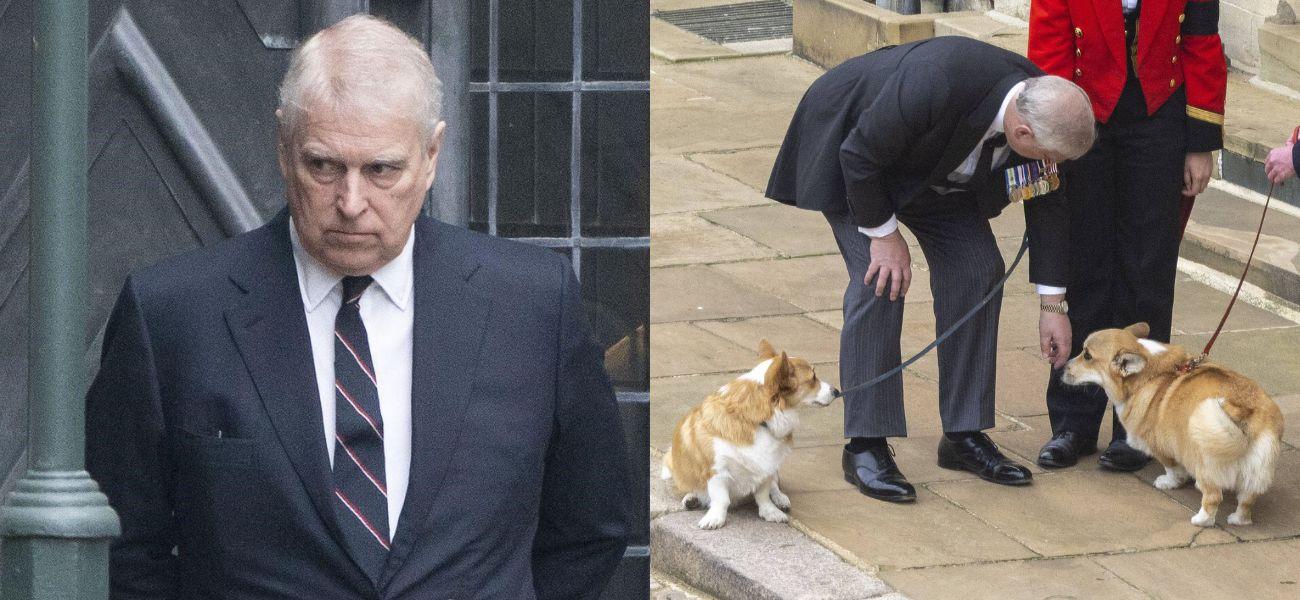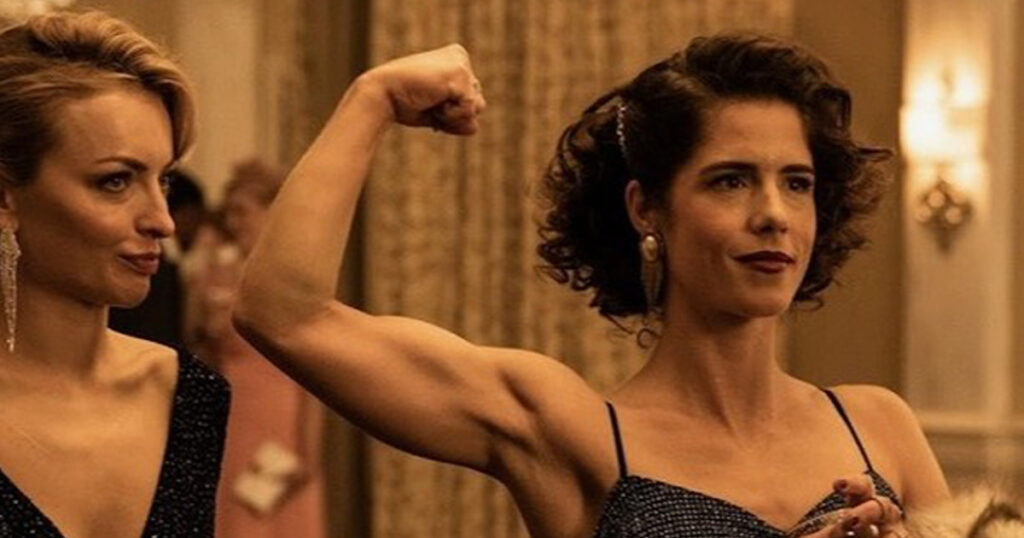NEW YORK — Queen Esther’s remarkable voice and musical range was on full and splendid display at her album-release show here at Joe’s Pub...

NEW YORK — Queen Esther’s remarkable voice and musical range was on full and splendid display at her album-release show here at Joe’s Pub in early August. She performed her original songs that weave together jazz, blues, gospel, country, and rock ’n roll and added brilliant covers of Billie Holiday and Queen.
The singer-songwriter, actress, and librettist performed nearly all the tracks from ,Rona, her album released in June. She also unveiled several songs from her forthcoming project, Blackbirding — a possible masterwork-in-the-making that explores race and gender, war and violence, and humanity and the spirit world.
“This means the world to me,” Queen Esther told the audience of roughly 100 at the storied downtown venue, a place with impeccable sound. “I am giving it to you with my whole heart.”
She was backed by jazz veteran Hilliard Greene on stand-up bass, J. Walter Hawkes (who joined Queen Esther in Taylor Mac’s off-Broadway wonder The Hang) on soprano and tenor ukulele and trombone, and guitarist Jeff McLaughlin. All the musicians also play on the album. (The same group is scheduled to play Friday night, ,Sept. 1 for The PLAYlist Concert Series in Durham, North Carolina, simulcast on WNCU.org.)
Queen Esther opened her show by leading the audience in Lift Every Voice and Sing, known as the Black national anthem.
Sing a song, full of the faith that the dark past has taught us
Sing a song, full of the hope that the present has brought us
Facing the rising sun of our new day begun Let us march on ’til victory is won
“That’s for all of us, because the national anthem that we do have,” she said, was penned by Francis Scott Key, who wrote of the “land of the free” but owned at least eight enslaved persons when he died.
Queen Esther wrote much of Rona during the early days of the coronavirus, when many New Yorkers fled the city and there seemed to be “tumbleweeds in the streets.” Her permanent boyfriend (as she calls him), Douglas Gillock, gave her a ukulele during the lockdown, so she learned to play and conjured songs on change, loss, and love.
Some of the songs resonate even more powerfully for her, she said, as she reflects on her brother Emmett’s untimely death last year.
One of those was her opening number, When I See You Again, a ukulele-driven song that leads off Rona.

When I see you again I know just what we’ll do
we’ll drink some sunshine and we’ll run these streets
like we used to do
when I see you again
After the ‘Rona
turns the whole world upside down
I’ll come around, I’ll be there, won’t you?
oh please don’t go without me
wait for me, I love you so
wait for me, I miss you so…
https://youtu.be/ywait-gHALAQueen Esther showed her powerful vocal range on the playful My Grumpy One, one of several tunes on the new album with Southern sayings such as “the devil might beat his wife” and reflecting her younger years in Atlanta and near the Carolina coast.
This night, so pretty
Nuts and bolts and doo-wah-ditty
Smoke ‘em if you got ‘em
there’s a riot going on in the city
got me hangin’ on…
What do you wish for my grumpy one
what do you long for when there’s no one
to say you can’t have everything
your sweet little heart desires…
Bounding on stage, straight from another gig, the accomplished gospel-and-jazz pianist Sharp Bradway took a seat by the baby grand. Queen Esther embraced him with both hands and a kiss.
“He smells like Brooklyn,” she said, smiling.

Queen Esther wrote her next number, Where Is Home? The dramatic ballad draws on Queen Esther’s unique vocal tone and phrasing, and recalls her spectrum of influences, from early jazz and blues singers to the likes of Nina Simone, influential bluesman Son House, and even the great Tammy Wynette.
She wrote the song as more and more New Yorkers retreated to other parts of the country if they could. Some even moved back in with their parents. “I mean, really, everybody left,” Queen Esther said.
Home? Where is home?
When everyone packs their things and goes
to a place they’ve always known as home
this was your home
now it’s empty as all get out
as every one gets out and leaves here
The dream is now a nightmare
screaming softly in the sun
we’re all just trying to get home
https://youtu.be/Yg6nmZ-aF3sQueen Esther then introduced several songs from Blackbirding, her alt-Americana album set for release in May 2024. She began writing songs for the upcoming record during a month-long residency at Gettysburg, Pennsylvania. She lived for a month in a house built in the 1850s on what became the battlefield. At night, she could see a million stars and sense the presence of ghosts.

She returned home the day before the COVID-19 shutdown and found New York eerily quiet. Victims of the virus were in hospitals dying alone, like the wounded soldiers at Gettysburg.
“They died alone on the battlefield because they were injured, and those injuries got infected, and no one came to get them,” Queen Esther said. “I imagined that they were just lying there looking at the stars as they felt the life begin to ooze out of them.”
“In a way, that’s what I came back to in New York,” she said.
All of this inspired Oh My Stars, a soaring number with the weight and depth of an American standard. Different versions of the song appear on Rona (with strings and a jazz-and-blues inflected guitar solo by McLaughlin) and Blackbirding (drenched in pedal-steel guitar).
Oh my stars, they are so high
so out of reach and still I try
we’re underneath the same sky
in a field of stars
You know the man in the moon
he really likes to stare
but I don’t care
he knows more than he’s letting on
he knows I’m going, going, gone
You came to me inside of a fever dream
you sat right next to me
in the longest, lonely hour of my life
I felt your love, I feel your love
https://youtu.be/A4SRRsVy69cQueen Esther then took out a banjo, at part of which dates back to the 1920s. “It’s so temperamental,” she said, tuning it after an especially hot, humid summer day in New York.
She played the banjo on I Feel So Alive, a blues from Blackbirding that features McLaughlin on gorgeous slide guitar. Queen Esther wrote the song about Iverson’s Pits, a low-lying portion of the Gettysburg battlefield where 900 men from a North Carolina regiment were “wiped out in one fell swoop,” she said. Visitors have reported seeing lit cigarettes floating in the night, audible moans, and the smell of tobacco smoke. That stretch of farmland was said to grow some of the best and tallest wheat in the region, she said.

Will you come to see me as I lay on my deathbed…
I'm headed to my grave my soul the Lord will save
Come to me in this great big field of desecration
the sun is high but it’s so dark
all I see is desolation
and I feel your love
come upon me from on high...
For the song’s ending, Queen Esther’s vocals and Greene’s thumping bass grew slower and slower, like a fading heartbeat. “As death comes to take me,” she sang, “I feel so alive.”
Another stunner during the Joe’s Pub show, The Devil May Care (But Jesus Knows), was inspired by The Devil’s Den, a hilly cluster of rocks at Gettysburg where Southern troops found some measure of success as snipers. Plum Creek nearby would become known as Bloody Run.
“They say that in one day, 50,000 people died,” she said. “And yes, they’re still out there.”
The song featured Sharp Radway on piano, church-style, with the chord progression of a rock song. “The devil may care, but Jesus knows,” Queen Esther sang.
https://youtu.be/iW_qL-RxuOM?si=BBIzFLE-GJFSTCitTrue to form, just like Rona, the show became even more eclectic. She covered Bread’s 1974 hit Lost Without Your Love, proving the song’s melodic influence on many other pop tunes over the years. Accompanied only by Radway on piano, Queen Esther sang it in sorrow.
Lost and all alone
I always thought that I could make it on my own
when you left, I hardly make it through the day
my tears get in the way
and I need you back to stay…
I wondered through the night
I searched the world
for the words to make it right
all I want is just the way it used to be
with you here close to me
and I’ve got to make you see
That I’m lost without your love
Life without you
isn’t worth the trouble of
I’m as helpless as a ship without a wheel…
She returned to a hopeful note with All That We Are, a soulful song on both Rona and her 2021 full-length album, Gild The Black Lily. She wrote and performed the number at an Obama Foundation event.

Here you come
looking for home
no matter how far you get
you still have a million miles to go
God knows how hard you’ve tried
you tried to make it on your own
but no one does anything alone
If you open your heart
you’ll fly when your feet
touch the ground
hold my hand, he’ll lift us up when the world puts us down
when love is all we have
and all that we are…
https://youtu.be/cx34vhialHEShifting gears but still on the same musical spectrum, she introduced Leonard Bernstein’s Big Stuff from the musical Fancy Free. It later was a smash for Billie Holiday but seems forgotten today, Queen Esther said.
She plans to release the studio version of Big Stuff on Things Are Looking Up, a jazz album of Lady Day’s lost classics and original songs. “This song is so dope,” she said. “It kind of sounds like a country song, but not really.”
So you cry
what it’s about baby
you ask why the blues had to go and pick you
so you go down to the shore
kid stuff
don’t you know there’s honey in store for you
big stuff
let’s take a ride in my gravy train
the doors open wide
come in from out of the rain
So you stare
call it despair baby
don’t you care
I’m on the square about you…
Then came Bohemian Rhapsody, which Queen Esther turns into an improv-jazz sounding number on Rona, performed live and on the album with Jeff McLaughlin. The madness of the song seemed appropriate as she watched the Jan. 6, 2021, attack on the U.S. Capitol.
“As I’m watching all of this happen, all I could hear was Bohemian Rhapsody playing over and over in my head. It just seemed to mesh perfectly with everything that was happening on screen,” she said, playing the footage as she performed the song at Joe's Pub.

Below: Queen Esther's version of Bohemian Rhapsody set to the Jan. 6 footage.
https://vimeo.com/663071327As Rona comes to a close, listeners can hear a voicemail from Queen Esther’s late brother Emmett that she didn’t discover until after he passed away. “I was afraid I would lose it, so I put it on the record,” she said.
They’d had a big argument just before his death. “I told him the truth, whether he wanted to hear it or not,” she said. “I was that person for him.”
Emmett’s voice filled the room, and for a brief moment he was there and she was overwhelmed. Through tears, Queen Esther said her brother had forgiven her. “He’s gone, but it’s OK. I’ll be along soon enough.”
She learned of his death during the run of The Hang. “Those beautiful freaks held me up,” she recalled. “They carried me all the way through it.”
Queen Esther ended her Joe’s Pub show by remembering Emmett with a gospel song from her Lowcountry South Carolina childhood, When I Get Home, which also will appear on Blackbirding.
In the morning, when I rise
shake the dust off my feet and wipe my weepin’ eyes
It might be early,
early in the morning
when I get home.
MORE: Our in-depth profile of Queen Esther from 2022 and more recent Q&A about the meaning of her latest album, Rona.















